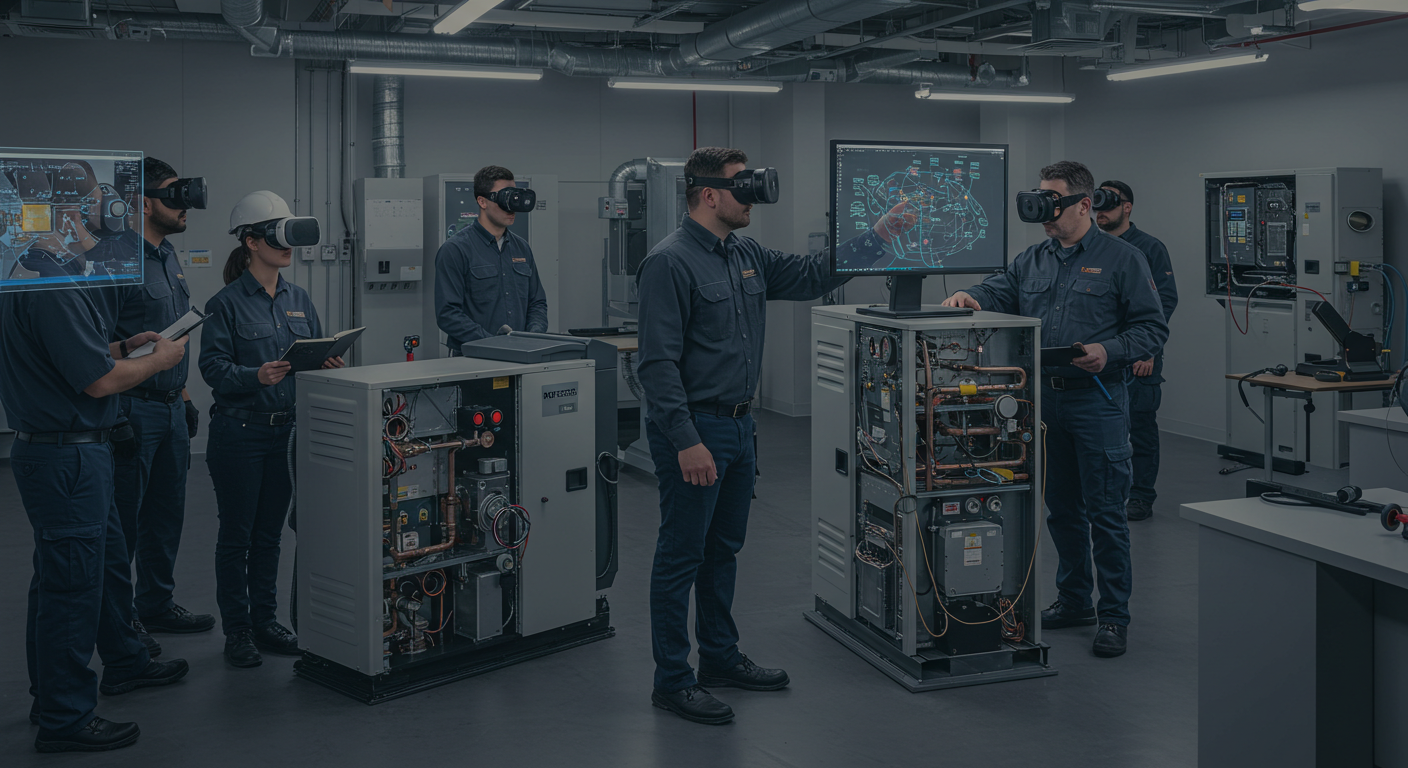
Preparing HVAC Apprentices for Real-World Challenges
As the HVAC industry continues to evolve, preparing apprentices with the skills they need to tackle real-world challenges is more important than ever. Whether you’re just starting out as an apprentice or guiding someone through their journey, understanding the landscape of HVAC training is crucial. In this post, we’ll explore how you can prepare for a successful career in the HVAC field, focusing on critical skills and training programs.
The Journey of an HVAC Apprentice
Embarking on an HVAC apprenticeship is a commitment that can span anywhere from 3 to 5 years. This period combines paid on-the-job experience with classroom instruction, giving you a robust foundation in diagnostic and troubleshooting skills. Such comprehensive training not only prepares you for immediate challenges but also sets you up for higher earning potential in the future.
Key Skills for Real-World HVAC Success
In today’s competitive market, real-world skills are crucial. Employers are increasingly looking for technicians who can navigate smart HVAC diagnostics, comply with green building codes, and utilize mobile diagnostic tools effectively. Additionally, mastering energy auditing, honing advanced customer service skills, and developing critical problem-solving abilities are essential.
Why Certification Matters
In the HVAC industry, certifications are more than just a formality—they’re a necessity. The EPA Section 608 certification is mandatory for all technicians working with refrigerants, and it’s typically earned shortly after or during your training. While this is the baseline, additional certifications like NATE can make you a more attractive candidate to potential employers. These certifications showcase your commitment to excellence and your readiness to tackle complex HVAC challenges.
Benefits of Comprehensive Training Programs
- Increased retention in companies investing in training partnerships.
- Higher earning potential with specialized skills.
- Improved job readiness through hands-on experience.
Adapting to Industry Trends
The HVAC field is dynamic, with a projected job growth of 9% from 2023 to 2033. This growth translates to over 40,000 new jobs, with approximately 20,200 roles expected for apprentices alone. Embracing advanced energy-efficient systems, such as those offered by Daikin, can give you a competitive edge. These systems often include smart thermostats, inverter compressors, and mobile-enabled diagnostics, all of which are becoming standard in modern HVAC solutions.
Conclusion
Preparing HVAC apprentices for real-world challenges involves a blend of solid training, certifications, and continuous learning. By focusing on the skills and certifications that matter, you can position yourself for success in this growing field. Remember, the key to thriving in the HVAC industry is a commitment to ongoing education and embracing new technologies.
Ready to start your HVAC career? Consider enrolling in a comprehensive apprenticeship program today and take the first step toward a rewarding future!
FAQs about HVAC Apprenticeship Training
What is the duration of a typical HVAC apprenticeship? HVAC apprenticeships generally last between 3 to 5 years, combining practical experience with classroom learning.
Why is EPA Section 608 certification important? It’s mandatory for working with refrigerants and demonstrates your readiness to work safely and effectively in the HVAC industry.
How can I improve my job readiness as an HVAC apprentice? Focus on gaining hands-on experience, obtaining necessary certifications, and developing skills in smart diagnostics and energy efficiency.
What are the prospects for HVAC job growth? The industry is expected to grow by 9% from 2023 to 2033, adding over 40,000 jobs, including many for apprentices.
Do I need a four-year degree to become an HVAC technician? No, most HVAC technicians start their careers with a certificate or diploma, emphasizing hands-on training and continuous upskilling.

